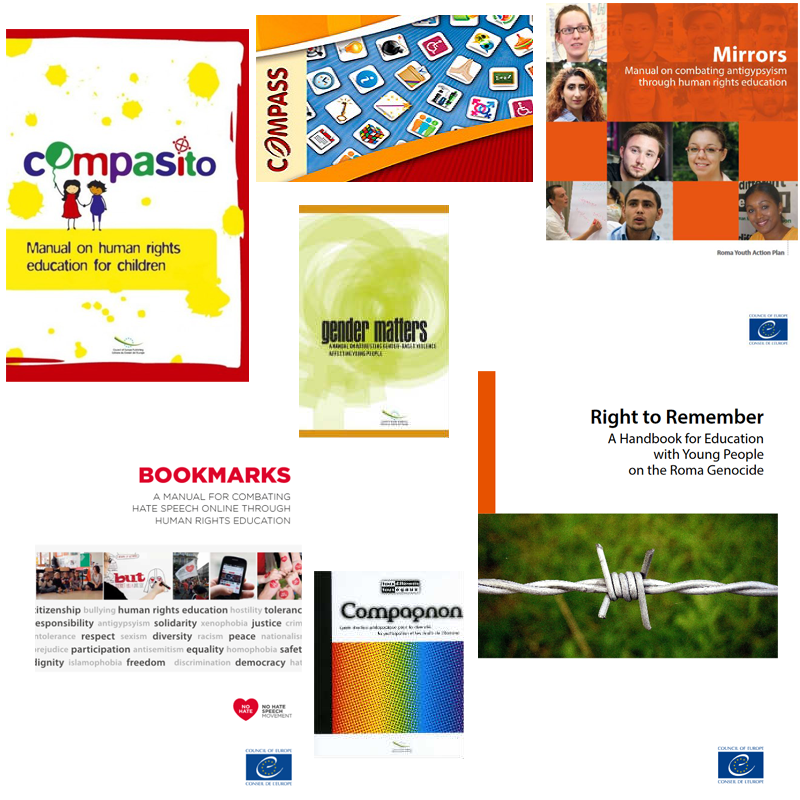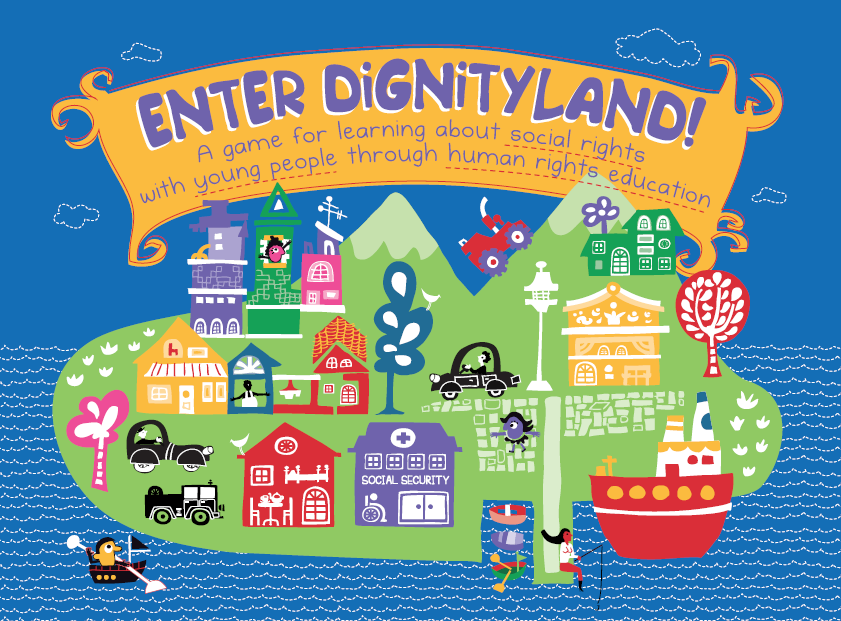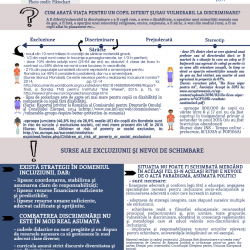Education and human rights: tools for inclusion, intercultural dialogue and democracy
”Human rights begin with breakfast”, René Cassin used to say. This quote, so synthetic, yet so clear, is a very useful starting point for understanding why the education for human rights is necessary in every person’s and every community’s life, in order to cohabit in a democratic and intercultural setting.
Below I will present some perspectives on these themes, starting from the instruments developed at the European level by the Council of Europe, more specifically by the Department for Youth.
Education for human rights and the Council of Europe
The mission of the Council of Europe is to promote democracy, human rights and the rule of law in the 47 member states. Many know the European Court of Human Rights as the main instrument of this institution. The Council of Europe considers human rights education and democratic citizenship education necessary tools for every person to be enabled to know their rights, to know how to apply them and, the most important thing, to learn to act in a so called ”human rights’ spirit.” In other words, the education for human rights means to know and also to learn to live together on the basis of some values – equality, solidarity, respect.
“Human rights education” means education, training, awareness raising, information, practices and activities which aim, by equipping learners with knowledge, skills and understanding and developing their attitudes and behaviour, to empower learners to contribute to the building and defence of a universal culture of human rights in society, with a view to the promotion and protection of human rights and fundamental freedoms.
The definition of human rights education from the Charter on Education for Democratic Citizenship and Human Rights Education
Why and what for do we need this kind of education?
First of all, taking into consideration the fact that the human rights are the instrument that provides development and a dignified life for every human being, knowing our rights and knowing how we can act up together in a society is a vital competence. From this perspective, the education for human rights serves not only as a way of spreading information, but also as a device used to develop social competences and to learn how democratic society works. Precisely, the education for human rights helps us to be citizens.
Here are some examples of interesting topics to be approached: what does voting mean? How to we construct our opinions and who influences them? How does a democratic society work and how are decisions taken? Why do minorities need in some cases special measures to be taken? What are the limits of the rights and what responsibilities do they imply?
Second of all, taking into consideration that the human rights education promotes an approach for equality and anti-discrimination, it can truly help us surmount the stereotypes and prejudices from which discrimination often roots. Human rights education, by the frame it creates, can help us talk about topics about which we would like to discuss but don’t know if we would be listened to, or about topics we wouldn’t want to talk about, but doing so would actually enable us to enrich our understanding of some issues in order to act knowingly, but in a spirit of equality and respect of each person. Nowadays, the capacity to discern the world we live in is a fundamental one, beneficial not only to being a good citizen, but also acting in a good way at our workplace or in private.
Some possible topics in this case can be gender equality, the integration of Roma children, the integration of the refugee children into the society, how we can approach the LGBT problems, the role of the society in the process of inclusion of persons with disabilities and so on. A very important role is played here by stereotypes and prejudices, but also by the institutionalized discrimination.

Handbooks published by the Youth Department - Council of Europe
Thirdly the education for the human rights can change an educational system from the perspective of the development of the quality of the educational process. For example, the education for human rights doesn’t mean starting the discussion with macro-problems, sometimes we can identify some topics right from the class or the group we’re addressing to: do we show patience towards those who have difficulties in expressing themselves? Do we respect those who have different views? How do we react when those who have more physical strength than us force us to do something against our will? How to we accept the new colleagues in our group or class? And so on. To discuss the way a group functions actually makes it work better. Any person who feels integrated into a group and being respected will lean better and feel more motivated. This kind of education also supposes the explicit integration of a development process of youth values. It is obvious that education has a role in the buildup of youngsters’ values and one other aspect of the education for human rights is explaining this fact and asking ourselves what values are created by education.
I would like to add here some methodological consideration on human rights education. Each time I formed educators on this subject I tried to make them think about their role and their own approach towards the group they were working with, and what values and attitudes were necessary to the educator in order to initiate a human rights education. This type of education assumes some competences tied to the educator’s knowledge, as well as their mindset. The way the didactic process is organized has more influence on the development of the youngsters’ values than the topics we discuss. An authoritarian setting in which we discuss about participation is, from the human rights education point of view, a contradiction. That’s why it’s important to remind the educators to reflect on the methodological approach they have in the educational process.
A commitment for the human rights education means much more than organizing a few interactive activities during which we talk about human rights. Above all, it means engaging in a process of changing and improving the quality of education, which also means that the education for human rights can be employed in any subject and shouldn’t be restricted to one subject. Furthermore, the purpose of human rights education is the personal change for the development of values, but also changing the behaviours and initiating actions targeted on human rights. For this matter, human rights education encourages the educators to work not only with youngsters, but also with associations, organizations, institutions, or parents, for example.
I have quoted the definition of human rights education from the Charter on Education for Democratic Citizenship and Human Rights Education, which has been adopted in 2010 and addresses primarily to the competent Ministries of the 47 member countries of the Council of Europe in order to recommend a series of actions meant for initiating abiding changes within the formal an non-formal educational system. This political effort born at a European level is very important nowadays, because among the 47 countries of the Council of Europe we can find a wide variety of practices and each country can sustain the integration of the human rights education and democratic citizenship in their own system. A sustained effort is necessary from this perspective.
Here are some instruments promoted by the Department for youth of the Council of Europe for human rights education:
- Compass - manual for human rights education with young people and Compassito, manual for human rights education for children.
- Bookmarks – manual for combating hate speech
- Education Pack all different are equal – manual for intercultural education with young people
Specifically for teachers, the Council of Europe developed pedagogical resources for them, for example the manuals ‘Living democracy’.
For further information about the programs of the Council of Europe on this topic: http://www.coe.int/en/web/edc/what-we-do
by Mara Georgescu
Mara Georgescu is a pedagogical advisor within the Department of Youth of the Council of Europe. Mara worked on this subject for human rights organizations in Romania and Italy. She is a co-author of the manual Bookmarks.









